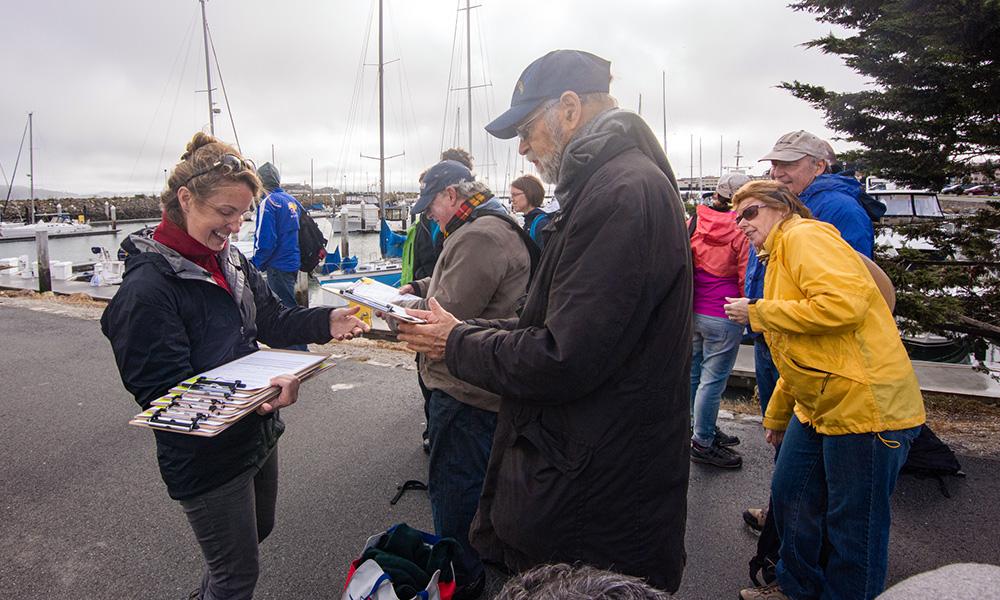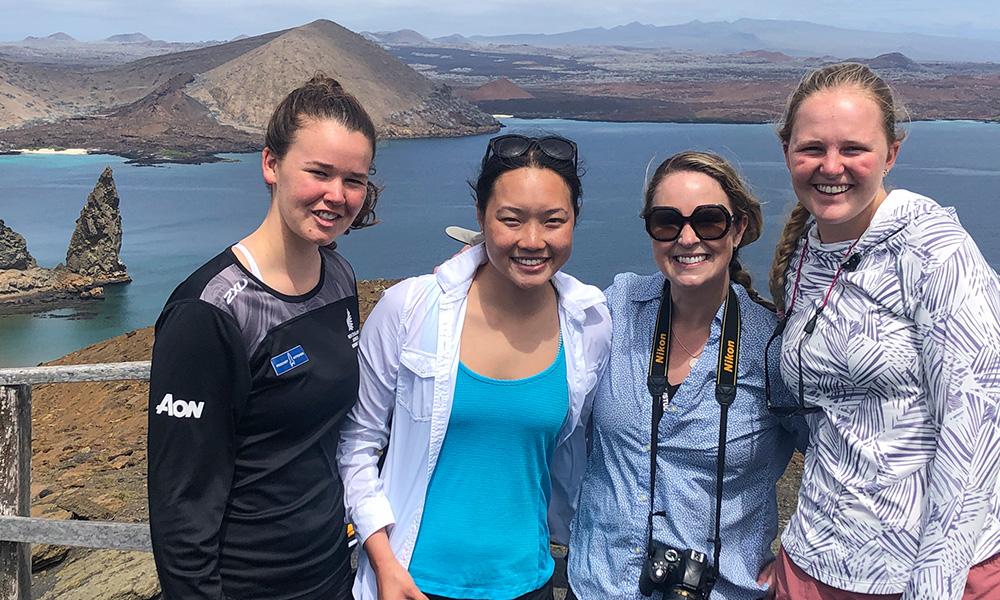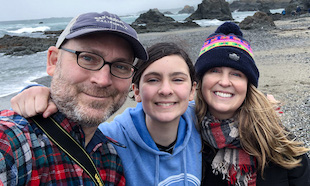Finding her calling
Alumna’s JMU education, worldview shape her impact as Stanford professor
Featured Stories
SUMMARY: Lifelong learner Nicole Ardoin (’93) is Being the Change through her service-oriented career. She is passionate about environmental advocacy and believes in the importance of making a difference in our own communities every day.
By Khalil Garriott (’04)
How does someone who grew up overseas then majored in French at JMU go on to earn an Ivy League Ph.D. and become an award-winning professor in the Graduate School of Education at a world-renowned private research university?
Well, that’s only part of Nicole Ardoin’s (’93) story. One’s chosen major doesn’t always determine their career field, and success is rarely a straight line. Along the way, she has used her varied interests and acute expertise to carve out her own niche.
Ardoin spent part of her junior year studying abroad in Paris. French was one of her two majors at JMU; international business was the other. The combination of language and business gave her a global perspective of the myriad challenges that exist beyond U.S. borders.
“I appreciated the complementary worldviews offered through French and international business, and through my minor of art history, all of which emphasized the importance of diverse perspectives,” Ardoin said. “I also appreciated that my majors and minor positioned me well to take on unique internships on and off campus. In the summer, I worked at the Smithsonian’s National Portrait Gallery and on campus at JMU’s student gallery—all of which provided me with leadership experience and a connection to a broader, culturally diverse world.”
After leaving Harrisonburg, Ardoin went on to earn a master’s degree in natural resource management from the University of Wisconsin–Stevens Point and later a doctorate in social ecology from Yale University. She has taught at Stanford University for 13 years.
“Nobody is ever an ‘empty vessel,’ so at each stage of the educational endeavor—whether you’re starting primary school or your Ph.D.—you come in brimming with a whole wealth of life experiences,” she said. “As a professor, I try very hard to honor that. … The experiences I encourage my students to have—while theoretically grounded—are connected to, and in service of, larger-world concerns and issues.”
The Stanford associate professor is active in environmental causes. She’s also skilled in collaborative learning, grant writing and community outreach. She is helping to solve the world’s most significant environmental and resource-sustainability challenges.

|
Ardoin said, “We all live, constantly and inextricably, in complex interaction with other living and nonliving parts of the broader ecosystem(s)—so each action has consequences. Paying attention to those ripples helps us learn, change and shift our actions over time—and, in that way, we influence the world just as the world influences us.”
Ardoin credits her time at JMU for molding the personal and professional life she enjoys today. She forged “remarkable, lifelong friendships” here and still stays in contact with longtime philosophy and religion professor William O’Meara. She’s married to fellow Duke Gregory Hawkins (’95), who earned a bachelor’s degree in geology. Though they aren’t able to return to campus often because of the 2,814 miles from here to there, the couple’s Purple Pride nevertheless runs deep.
“We’ve only been back to campus a couple of times since graduating, but when we did, it still felt close-knit—even with all the growth,” she said. “We especially love the vibrancy of downtown Harrisonburg and have a fondness for the charming historic homes and gorgeous old trees.”
2016 was a big year for Ardoin. She was promoted from assistant professor to associate professor at Stanford that year, earned tenure and promotion, and became the senior fellow at the Stanford Woods Institute for the Environment, the institution’s hub for environmental studies faculty and a cross-disciplinary research lab.
She reflected, “I hope to be equally enthusiastic about, curious about and motivated by my research questions, colleagues, places, issues and opportunities decades from now, as I was in 2016, and as I am today! A career in academia is, as they say, a journey and not a destination. Thankfully, I am motivated and energized by my area of scholarship, and I am grateful every day for the dedication and vision of my lab members, students, colleagues and our alumni.”
Since 2019, she has been the Emmett Family Faculty Scholar at Stanford’s School of Earth, Energy & Environmental Sciences. Stanford Earth develops the knowledge, talent and leadership to understand and help solve the challenges facing the planet.
“I worked as an interpretive ranger at Grand Canyon National Park, where I led hikes into the canyon and helped develop exhibitions in their main visitor center,” she said. “While there, I found my calling. My love for the environment and environmental causes grew, and I realized the power of education to engage people in complex conversations about issues related to sustainability and conservation.”

Being a professor with a joint appointment, endowed chairholder and ambitious scholar is impressive enough. But Ardoin’s service to the field doesn’t stop there. She also chairs the Education Advisory Council of NatureBridge, formerly Yosemite Institute, a nonprofit that connects more than 35,000 students and 600 schools yearly to the wonder and science of the natural world. Additionally, she runs the Stanford Social Ecology Lab, which brings social science insights to bear on pressing sustainability challenges. With increased attention on the urgency of climate change, Ardoin believes it is a full-on crisis that requires adaptation to a changing world.
“Climate change is perhaps the single greatest threat we face as humans—and have faced historically,” Ardoin said. “Climate change is not a single issue, but rather is a ‘crisis multiplier,’ in that it not only causes, but also exacerbates, threats from related challenges such as droughts, floods, wildfires and other extreme weather events.
“Yet despite those incredibly overwhelming aspects, climate change is not an intractable problem. Climate change is a people problem, and because it is human-caused, people are also at the core of the solution. By working together, through policy, enhanced technological and scientific approaches, and individual and collective actions, we can—and indeed must—make a difference. Our individual actions, combined with those of others, can make a difference in terms of lowering our carbon footprint.”
She stays curious, reflects often and focuses on actionable knowledge—all with a rare humility that belies her lengthy curriculum vitae. With more than two decades of experience in environment, sustainability, behavioral science and community-based learning/education, Ardoin is Being the Change through her service-oriented career. The world is a better place because of her skills in championing social causes, research design and implementation, assessment and evaluation, philanthropic strategy, program design and writing/editing for impact.
Education. Engagement. Earth. Energy. Environment. Ecology. What could be more noble?
“We can all make a difference in our own community every day,” Ardoin said, “and, being lifelong learners, it’s never too late to learn more, try something new, and become involved in important issues to make the world a better place for today and tomorrow.”

